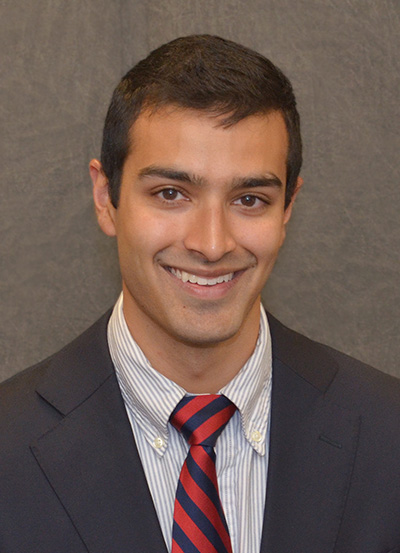November 18, 2020Press Release
Mass Eye and Ear Experts Urge FDA to Allow Over-the-Counter Hearing Aid Devices
Media Contact
Ryan Jaslow
Program Director, External Communications - Research, Mass General Brigham
617-573-4385 | rjaslow@mgb.org
Hearing specialists write in The New England Journal of Medicine that regulatory delays implementing the Over-the-Counter Hearing Aid Act of 2017 amount to a “deafening silence” for hearing loss community.
Boston, Mass. — Hearing loss experts at Mass Eye and Ear are advocating for the U.S. Food and Drug Administration (FDA) to implement a law passed by Congress permitting the sale of over-the-counter (OTC) hearing aids.
In a new column published November 19, 2020 in The New England Journal of Medicine, the experts write that the FDA has remained silent after missing the statutory deadline to implement the Over-the-Counter Hearing Aid Act of 2017. The authors point out that hearing aids are typically not covered by insurance, and such new regulations could greatly increase access to the devices and improve quality of life for some of the 30 million Americans who are hard of hearing.
 “As medical providers, we fully appreciate the impact the COVID-19 pandemic has had on all sectors of health care. However, this inaction for OTC hearing aids is leaving millions of Americans without the necessary devices they were promised and will benefit from through implementation of this law, said Kevin Franck, PhD, director of Audiology at Mass Eye and Ear and a member of the faculty at the Harvard Medical School’s Department of Otolaryngology—Head and Neck Surgery. “We call on the FDA to make OTC hearing aids a priority for the American people and address the deafening silence that has occurred since the federal government heard the call from advocates and issued a legislative mandate over three years ago.”
“As medical providers, we fully appreciate the impact the COVID-19 pandemic has had on all sectors of health care. However, this inaction for OTC hearing aids is leaving millions of Americans without the necessary devices they were promised and will benefit from through implementation of this law, said Kevin Franck, PhD, director of Audiology at Mass Eye and Ear and a member of the faculty at the Harvard Medical School’s Department of Otolaryngology—Head and Neck Surgery. “We call on the FDA to make OTC hearing aids a priority for the American people and address the deafening silence that has occurred since the federal government heard the call from advocates and issued a legislative mandate over three years ago.”
Congressional Law Remains Stalled Since 2017 Passage
Hearing impairment can significantly impact a person’s quality of life. Numerous studies have reported benefits of hearing aids; however, only an estimated 15 to 30 percent of eligible people with hearing loss get a hearing aid. This can be due to limited access to hearing services and a prohibitively expensive price – hearing aids can cost over $2,300 per ear, and often are not covered by insurance.
These barriers prompted Congress to pass the bipartisan Over-the-Counter Hearing Aid Act of 2017, which required the FDA to propose regulations within three years governing OTC hearing aids for the treatment of adults with mild to moderate hearing impairment. The FDA missed the deadline to release the much-anticipated regulations on August 18, 2020, citing competing priorities during the COVID-19 pandemic. Yet with mask requirements and calls for social distancing during the pandemic negatively impacting the hearing impaired and their ability to lip-read, the authors argue the need for OTC hearing aids is greater now than ever.
Authors Offer Recommendations for Regulation
Among the law’s requirements, Congress tasked the FDA to formulate regulations to assure the safety and effectiveness of OTC hearing aids. However, most hearing aids sold through clinics are exempt from FDA premarket review, and manufacturers are not required to submit evidence of their safety and effectiveness in order to receive clearance for marketing. This lack of framework currently puts the onus of evaluating hearing aid performance to patients and their hearing providers.
 “We believe it will be critical for the FDA to require premarket testing, so that any patient who shops online or in person for a hearing aid receives a product that is proven to be effective,” said Vinay K. Rathi, MD, a postdoctoral clinical fellow at Mass Eye and Ear. “The current hearing aid market is very consolidated, but creating a class of over-the-counter hearing aids could encourage entry by new manufacturers and spur innovation. That said, newer is not always better. Regulators and clinicians need to carefully evaluate new technologies as they come online.”
“We believe it will be critical for the FDA to require premarket testing, so that any patient who shops online or in person for a hearing aid receives a product that is proven to be effective,” said Vinay K. Rathi, MD, a postdoctoral clinical fellow at Mass Eye and Ear. “The current hearing aid market is very consolidated, but creating a class of over-the-counter hearing aids could encourage entry by new manufacturers and spur innovation. That said, newer is not always better. Regulators and clinicians need to carefully evaluate new technologies as they come online.”
The authors suggest that the FDA could require clinical study of novel OTC hearing aids or new models with user interfaces that substantially differ from previously approved devices. They also call for studies to assess the comparative effectiveness of user-fitted aids to audiologist-fitted aids or other OTC hearing aids. This evidence can help support informed decision making as patients and clinicians adapt to what could be a significant increase in available devices.
Establishing stricter pre-market requirements could help the FDA make a clearer distinction between hearing aids and other wearable sound amplification products that are available online. The authors urge the FDA to strictly enforce the distinction between these types of devices and collaborate with the Federal Trade Commission (FTC) to prevent confusion among consumers, particularly when these two types of devices are available at the same points of sale.
About the Authors
Dr. Kevin Franck is a practicing audiologist with 20 years of academic, clinical, and industry experience in healthcare and bionic medical/hearing devices. He directs non-profit deaf advocacy organizations as a volunteer board member/trustee for the Hearing Loss Association of America, which was involved in lobbying Congress to pass the law. Dr. Franck is also participating in an invited article for the Lancet Commission to address technology and innovation and its response to global burden of hearing loss. Prior to joining Mass Eye and Ear, Dr. Franck was Head of Marketing for Bose Hear Emerging Business, a division of Bose Corporation focused on developing hearing tools. Dr. Franck was one of three founding members of Ear Machine, a start-up funded by the National Institutes of Health before it was acquired by Bose in 2014.
Dr. Vinay K. Rathi is a clinical fellow in Otolaryngology—Head and Neck Surgery at Mass Eye and Ear and Harvard Medical School. His research interests include medical device regulation and healthcare payment reform. His work has been published in JAMA, The New England Journal of Medicine, Nature Biotechnology, and the BMJ. Dr. Rathi previously worked at McKinsey & Company, Mass General Brigham, and the Yale-New Haven Hospital Center for Outcomes Research and Evaluation (CORE).
About Mass Eye and Ear
Massachusetts Eye and Ear, founded in 1824, is an international center for treatment and research and a teaching hospital of Harvard Medical School. A member of Mass General Brigham, Mass Eye and Ear specializes in ophthalmology (eye care) and otolaryngology–head and neck surgery (ear, nose and throat care). Mass Eye and Ear clinicians provide care ranging from the routine to the very complex. Also home to the world's largest community of hearing and vision researchers, Mass Eye and Ear scientists are driven by a mission to discover the basic biology underlying conditions affecting the eyes, ears, nose, throat, head and neck and to develop new treatments and cures. In the 2020–2021 “Best Hospitals Survey,” U.S. News & World Report ranked Mass Eye and Ear #4 in the nation for eye care and #6 for ear, nose and throat care. For more information about life-changing care and research at Mass Eye and Ear, visit our blog, Focus, and follow us on Instagram, Twitter and Facebook.

